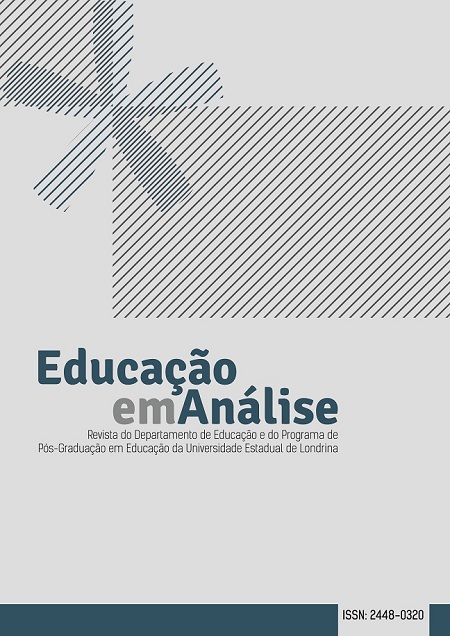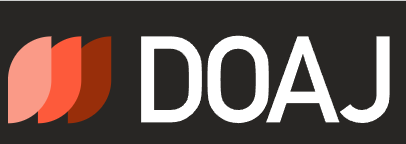Uma ponte para o futuro: educational policies and public-private partnerships
DOI:
https://doi.org/10.5433/1984-7939.2017v2n1p37Keywords:
Educational politics, Democratization of Education, Partnership educationAbstract
The text argues that neo-liberal and Third Way theses are not democratic, although they use the discourse of democracy to undertake their actions and gain social legitimacy. Although they present themselves as guardians of democracy, they are contrary to the initiatives of redistribution of wealth and the possibility of the working class's access to economic and social goods, through public policies subsidized by a provider State. Thus, currently much of the social rights conquered historically are privatized and/or offered in a system of partnerships between the public and private sector. This strategy is used notably in education, undermining the constitutional principle of free teaching. Based on these assumptions, the text aims to (i) discuss the main neoliberal theses; (ii) explain the historical constitution of neoliberalism and Third Way in Brazil, and (iii) discuss its implications for educational policies in the current context, focusing on Temer's government and its Program "Uma Ponte para o Futuro". The study, carried out through bibliographical research and documentary analysis, concludes that the current measures of the federal government for public education contribute to its dismantling while at the same time favor the private business sector presented as a model to be followed in public education.Downloads
References
BRESSER PEREIRA, L. C. Plano Diretor da Reforma do Aparelho do Estado no Brasil. Brasília, 1995.
BUCHANAN, J. M. The Logical Foundations of Constitutional. Indianapolis: Liberty, 1999.
FRIEDMAN, M. Capitalismo e Liberdade. São Paulo: Abril Cultural, 1984.
FRIGOTTO, G. Os circuitos da história e o balanço da educação no Brasil na primeira década do século XXI. Revista Brasileira de Educação, Rio de Janeiro, v.16, n. 46, p. 235-274, 2011.
FUNDAÇÃO ULYSSES GUIMARÃES. Uma ponte para o futuro. PMDB, 2015. Disponível em: . Acesso em: ago. 2016.
GIDDENS, A. A Terceira Via: reflexões sobre o impasse político atual e o futuro da social-democracia. Rio de Janeiro: Record, 2001.
GRAMSCI, A. Os Intelectuais e a Organização da Cultura. 3 ed. Rio de Janeiro: Civilização Brasileira, 1979.
GROPPO, L. A.; MARTINS, M. F. Terceira Via e políticas educacionais: um novo mantra para a educação. Revista Brasileira de Política e Administração da Educação, Goiânia, v. 24, n. 2, p. 215-233, 2008.
HARVEY, D. Condição pós-moderna: Uma pesquisa sobre as origens de mudança cultural. São Paulo: Loyola, 1996. HARVEY, D. O novo imperialismo. 4. ed. São Paulo: Loyola, 2010.
HAYEK, F. A. V. O caminho da servidão. Rio de Janeiro: Instituto Liberal, 1990.
MARTINS, A. S. A direita para o social: a educação da sociabilidade no Brasil contemporâneo. Juiz de Fora: UFJF, 2009.
MENEZES, J. S. da S. A vinculação constitucional de recursos para a educação: Os (des) caminhos do ordenamento constitucional. HISTEDBR, Campinas, v. 30, p. 149-163, 2008.
MONTAÑO, C. Terceiro setor e questão social: crítica ao padrão emergente de intervenção social. São Paulo: Cortez, 2002.
PAULANI, L. Brasil delivery: servidão financeira e estado de emergência econômico. São Paulo: Boitempo, 2008.
PERONI, V. M. V. As relações entre o público e o privado nas políticas educacionais no contexto da terceira via. Currículo sem Fronteiras.13(2). p. 234- 255, 2013.
POULANTZAS, N. Poder Político e Classes Sociais. São Paulo: Martins Fontes, 1977.
RAVITCH, D. Vida e morte do grande sistema escolar americano: como os testes padronizados e o modelo de mercado ameaçam a educação. Porto Alegre: Sulina, 2011.
SAVIANI, D. O Plano de Desenvolvimento da Educação: análise do projeto do MEC. Educação & Sociedade, Campinas, v. 28, n. 100, p. 1231-1255, 2007.
SAVIANI, D. Sistema Nacional de Educação e Plano Nacional de Educação: significado, controvérsias e perspectivas. Campinas: Autores Associados, 2014.
SCHULTZ, T. O valor econômico da educação. Rio de Janeiro: Zahar, 1967.
SILVA, I. G. Democracia e Participação na "Reforma" do Estado. São Paulo: Cortez, 2003.
WOOD, E. M. Democracia contra capitalismo: a renovação do materialismo histórico. São Paulo: Boitempo, 2006.
WOOD, E. M. O império do Capital. São Paulo: Boitempo, 2014.
Downloads
Published
How to Cite
Issue
Section
License
Copyright (c) 2017 Educação em Análise

This work is licensed under a Creative Commons Attribution 4.0 International License.
Os artigos publicados na Revista Educação em Análise estão sob a Licença Creative Commons Atribuição 4.0 Internacional, garantindo Acesso Aberto. Deste modo, os autores mantêm os direitos autorais de seus trabalhos e, em caso de republicação, solicita-se que indiquem a primeira publicação nesta revista. Essa licença permite que qualquer pessoa leia, baixe, copie e compartilhe o conteúdo, desde que a devida citação seja feita. Além disso, autoriza a redistribuição, adaptação e criação de obras derivadas em qualquer formato ou meio, incluindo uso comercial, desde que a atribuição à revista seja mantida.
A revista se reserva o direito de efetuar, nos originais, alterações de ordem normativa, ortográfica e gramatical, com vistas a manter o padrão culto da língua e a credibilidade do veículo. Respeitará, no entanto, o estilo de escrever dos autores. Alterações, correções ou sugestões de ordem conceitual serão encaminhadas aos autores, quando necessário.
As opiniões emitidas pelos autores dos artigos são de sua exclusiva responsabilidade.
























